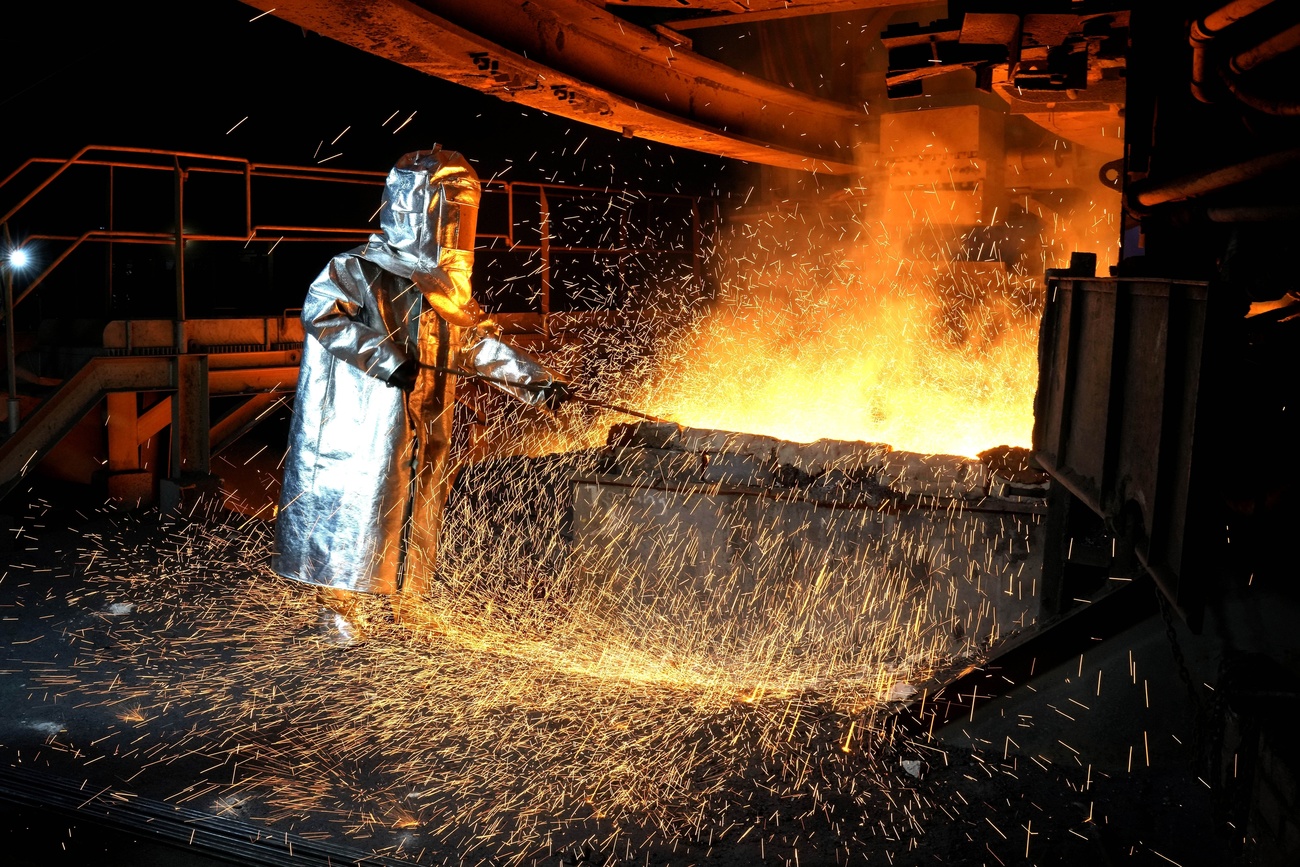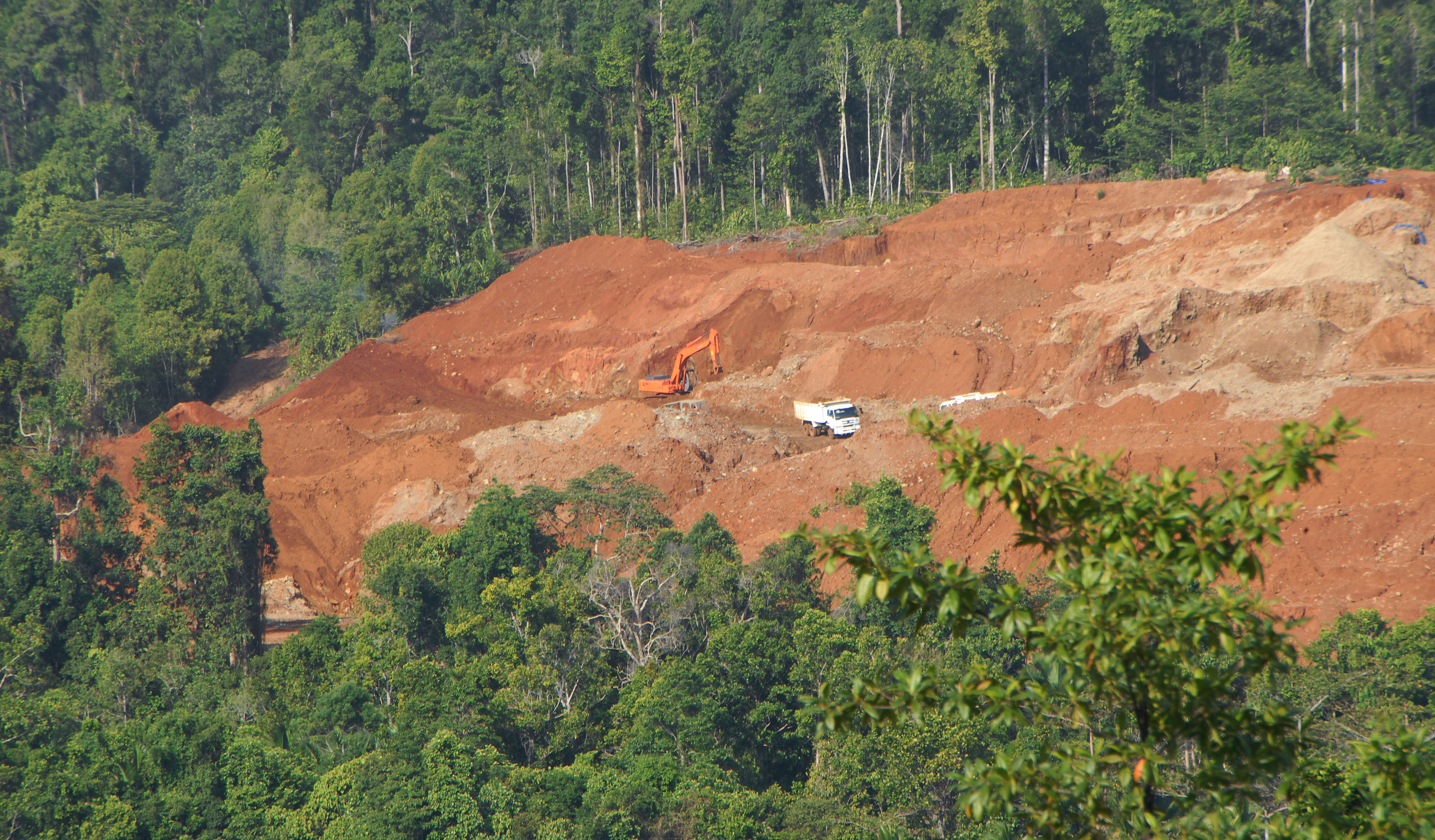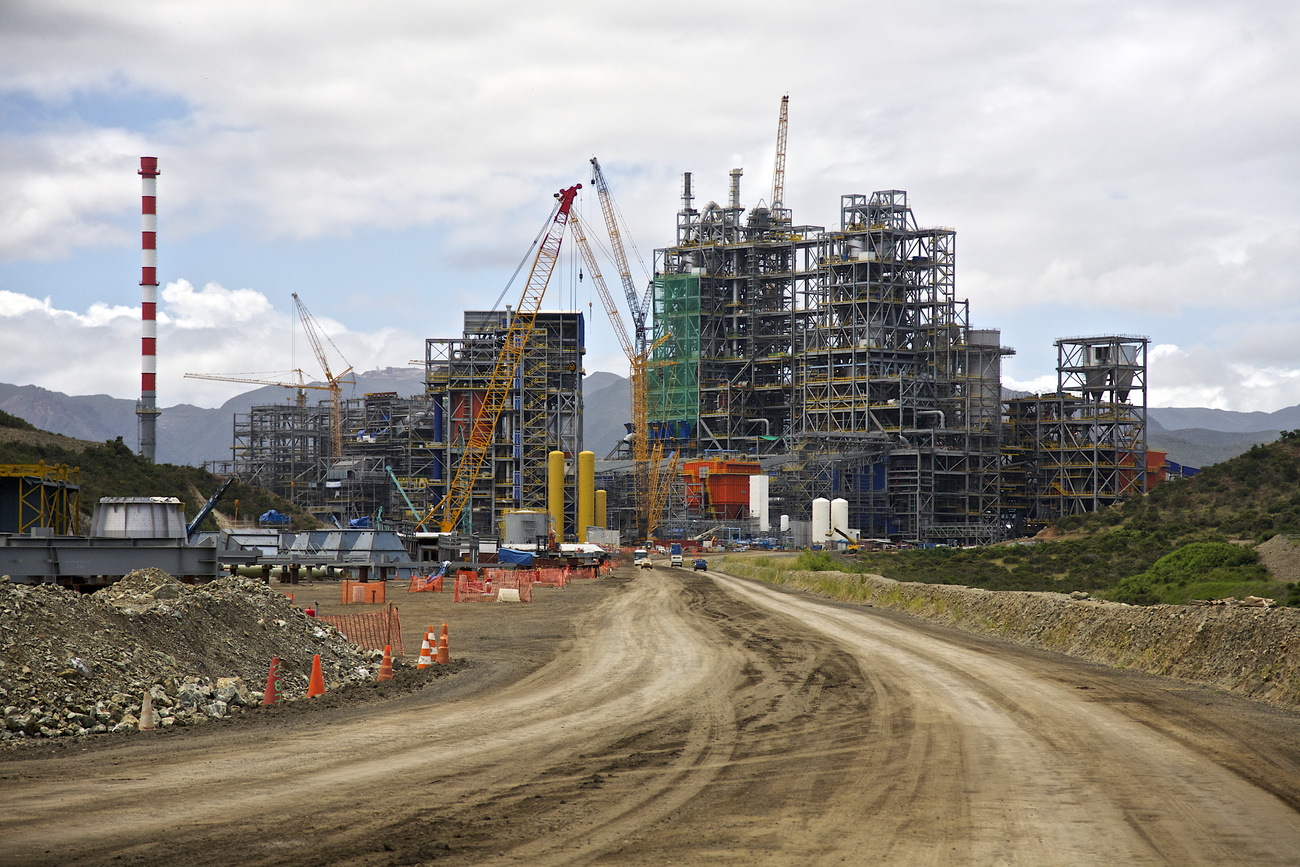Can Indonesia reply to global nickel demand without destroying its environment?

Indonesia is making the most of its nickel ore reserves and has invested in developing a home-grown industry. The success story comes with a downside: pollution and deforestation. As demand for critical minerals soar, the United Nations is pushing for standards.
Ten years ago, Indonesia announced it was banning the export of nickel ore, one of its main natural resources. As countries globally were pressured to minimise their environmental footprint and move to cleaner energy sources, the archipelago state, which has the world’s largest nickel reserves, saw an opportunity to diversify its economy and gain more revenue.
Nickel is needed to produce stainless steel. It’s also an important component used to make batteries for electric vehicles.
Nickel, along with copper, lithium, cobalt and rare earths, is needed in wind turbines, solar panels, electric vehicles and battery storage systems. Its production is set to almost triple by 2030, according to UN figuresExternal link.
The UN has said the demand for these natural resources, many of which can be found in developing countries, is an opportunity for these states to create high-end jobs and boost GDP growth.
But this often comes at the cost of the environment. Extraction often pollutes the soil, leaving huge, bare swaths of forest.
“The energy transition is a historic opportunity,” declared Rebeca Grynspan, UN Trade and Development organisation (UNCTAD) secretary-general, at the COP29 climate conference in Azerbaijan last November. She called for a future to be built “in which critical minerals become a catalyst for prosperity and leave no one behind”.
That’s exactly what prompted Indonesia to halt its exports of nickel ore. It wanted to develop a home-grown processing industry in the country, rather than just sell the raw material. Up until that point, its main market was China, which bought 90% of its nickel ore. After the export ban, foreign companies, especially large Chinese ones such as the mining holding firm, Tsingshan, began investing in the country.
Since the export ban came into force in 2020, Indonesia has dominated the nickel market. In 2023, the country produced nearly half of the world’s refined nickel.
At a UNCTAD conference in Geneva in April 2024, Deputy Mining Minister Septian Hario Seto said the export ban was just one of the measures taken to develop a domestic industry. Others included tax and fiscal incentives as well as measures to promote investment and simplified approval procedures to set up businesses.
“The government is striving for economic transformation […] and to encourage the development of a high value-added industry,” Seto said.
Indonesia also launched a university programme to train a local workforce and promote sustainable economic development.
Going forward, Indonesia aims to produce batteries for electric vehicles and build cars. In the summer of 2024, the country opened its first battery factory for electric vehicles in the province of West Java.
“A comprehensive national plan was central to the country’s ability to attract foreign direct investment,” Clovis Freire, head of commodities at UNCTAD’s international trade and commodities division, told SWI swissinfo.ch in Geneva.
According to UNCTAD, in 2021 alone, Indonesia’s value added from nickel increased from $1.1 billion (CHF1 billion) to $20.8 billion, following the implementation of the 2020 export ban. According to Seto, the government’s measures contributed to higher tax revenues from the downstream nickel industry, which rose from $266 million in 2019 to $1.3 billion in 2022.
Complaint to WTO
However, not everyone is rejoicing at Indonesia’s industrial transformation and export ban.
The European Union feared a negative impact on its steel industry and successfully challenged the export ban at the World Trade Organization (WTO) in Geneva, claiming it violated global trade rules. The WTO declared the ban unlawful. Indonesia appealed the decision. The case has not yet been scheduled, as the WTO appeals body is currently not operational.
UNCTAD has also said countries need to avoid protectionist measures.
There is now also criticism from environmental organisations. According to the International Union for Conservation of Nature (IUCN), the nickel boom in Indonesia is leading to deforestation, environmental pollution, damage to coastal areas and corals, as well as the loss of livelihoods for the local population. Forests are being cleared at an alarming rate, particularly on the islands of Sulawesi and the Moluccas.
According to IUCN NL, the Dutch branch of the organisation, the nickel boom has resulted in the loss of over 75,000 hectares of forest. More than half a million additional hectares of Indonesian forest are within nickel concessions, putting them at risk of deforestation. Indonesia’s nickel ore lies in shallow deposits that are accessible when the rainforest is cleared.

The rapid increase in nickel processing plants is also damaging natural ecosystems. The Associated Press news agency recently reported that on the Moluccan island of Halmahera, coal-fired power plants burn continuously alongside smelting furnaces to refine nickel ore into material for batteries and steel.
Nickel production does not have to be dirty. The cleanest plants produce emissions well below the industry average, according to a study External linkby the non-profit organisation Transport and Environment. In a bid to clean up the industry, Maartje Hilterman from IUCN NL is calling on the automotive industryExternal link to take measures to trace the origin of its nickel by using satellites, for example, and to ban nickel from deforested areas.
UN guidelines
In September 2024, a panel of experts convened by UN Secretary-General António Guterres published a set of recommendations and guidelines for governments, industry and other stakeholders on the extraction, processing and use of key minerals. The aim is to make the entire value chain environmentally friendly, while also respecting human rights.
“This report shows ways in which the renewable energy revolution can be based on justice and equity so that it promotes sustainable development that respects people, protects the environment and boosts prosperity in resource-rich developing countries,” said Guterres.
UNCTAD contributed to the report. “The idea of the guidelines is to support the UN’s Sustainable Development Goals (SDGs),” says Freire of UNCTAD.
Some countries have responded positively to calls for greater transparency. For example, Colombia and Brazil, which extract nickel, manganese, copper and rare earth metals, have pushed for a new binding global agreement on the traceability of minerals needed for the energy transition along their entire supply chain, from extraction to recycling.
The two countries announced the initiative in October 2024 on the sidelines of the UN Biodiversity Summit (COP16) in the Colombian city of Cali. They want to present a proposal for the pact by the COP30 UN Climate Change Conference in Belém, Brazil, which takes place in November 2025.
To address environmental concerns, Indonesia launched a traceability mechanism designed to monitor the production and sale of nickel, according to the news platform The Asia Live.
The system ensures that every tonne of nickel ore can be traced from production to sale, allowing the government to block shipments from companies that violate environmental regulations. Additionally, Indonesia is encouraging companies to obtain independent international ESG (environmental, social, and governance) certifications.
Edited by Virginie Mangin/gw. Picture research by Helen James. Infographics by Kai Reusser.

In compliance with the JTI standards
More: SWI swissinfo.ch certified by the Journalism Trust Initiative










You can find an overview of ongoing debates with our journalists here . Please join us!
If you want to start a conversation about a topic raised in this article or want to report factual errors, email us at english@swissinfo.ch.